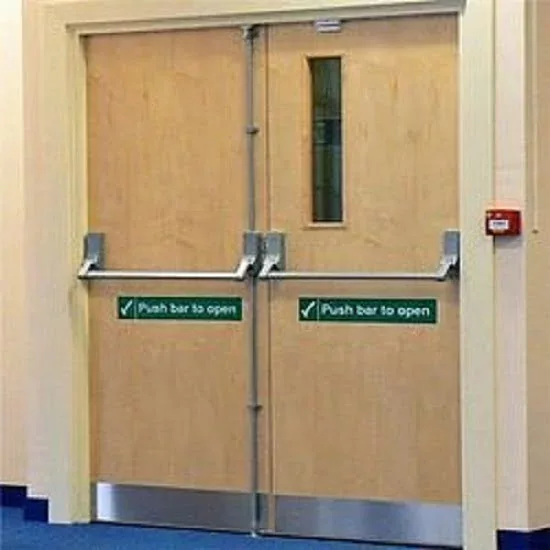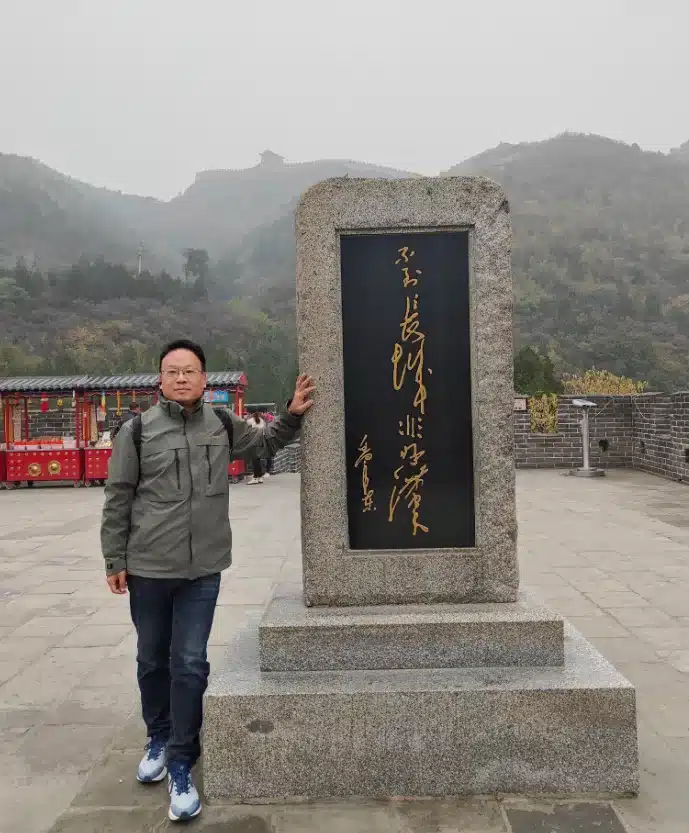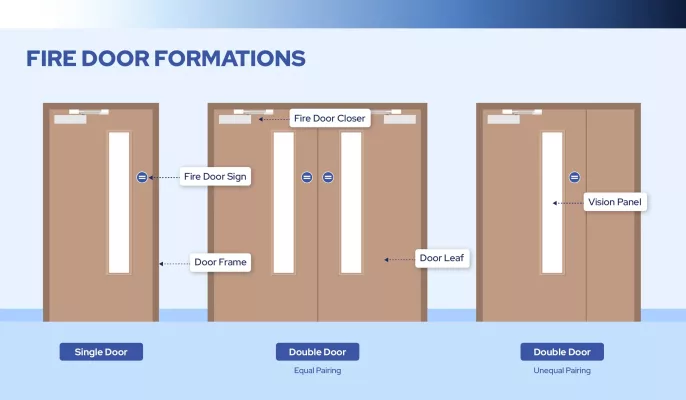

In early November, Henan Yuankai Door Industry officially reached a strategic cooperation agreement with a leading distributor in Brazil, marking a significant step toward establishing a stable and cost-efficient supply chain for Brazil steel fire doors. The Brazilian partner has a well-established nationwide sales network, especially in the construction and safety materials sector, while Yuankai brings large-scale manufacturing capability, consistent product quality, and competitive pricing. This collaboration enables both sides to complement each other’s strengths: Brazil gains a reliable and affordable source of steel fire doors, and Yuankai gains a strong local market channel backed by on-the-ground market insights and customer relationships.
Background — Brazil’s Fire Door Market Needs Reliable Supply
Over the past few years, Brazil’s construction sector has continued to expand, driven by new residential developments, commercial complexes, and public infrastructure upgrades. With more enclosed spaces being built, the demand for fire safety materials has increased accordingly. However, domestic manufacturing capacity for steel fire doors in Brazil remains relatively limited. Even well-established local brands often face challenges such as high labor costs, smaller-scale production, and fluctuating raw material prices. These factors contribute to a higher final cost in the market and create persistent pressure on project budgets.
In contrast, manufacturers in China, including Henan Yuankai Door Industry, benefit from mature industrial clusters, automated production lines, and optimized supply chains. This allows Yuankai to produce Brazil steel fire doors at consistent quality and a more cost-efficient price point—approximately 380 BRL per unit in this cooperation framework. For Brazilian distributors and construction contractors, this efficiency does not simply mean “cheaper products,” but rather more predictable lead times, stable product specifications, and scalable monthly supply, which are crucial for long-term project planning.
As a result, looking globally for reliable suppliers has become an increasingly common strategy among Brazilian distributors seeking to stay competitive. This strategic partnership reflects that shift: local market insight from Brazil meets manufacturing capability from China, forming a complementary and sustainable supply structure.

Meeting & Technical Evaluation — Ensuring Quality Beyond Price
During the on-site meeting, both teams focused on the technical details that directly affect product performance in real building environments. Rather than centering the discussion solely on pricing, the evaluation placed priority on durability, installation reliability, and long-term stability, which are essential criteria for fire-rated doors used in commercial and residential projects.
Inspection of Hinges, Latches, and Structural Components
The Brazilian partner conducted a hands-on inspection of the hinges, latches, door frame reinforcements, and steel plate thickness. Each hinge was opened, checked for alignment tolerance, and tested for smooth rotation under weight. The latch was disassembled to verify internal spring force and locking engagement, ensuring that the door would remain securely closed during fire conditions. Door frames were examined to confirm the connection strength between the hinge reinforcement plate and the main frame, a critical factor for preventing deformation at high temperatures.
This level of detail reflects a shared understanding: fire doors are not just metal slabs — they are engineered safety components. The successful review demonstrated that Yuankai’s production process maintains consistent dimensional accuracy and structural integrity across batches, supporting reliable installation and long-term performance in the field.
Customized Packaging and Split-Shipping Plan
To further protect product integrity during international transit, we worked together to design a split-shipping and reinforced packaging plan specifically for the Brazil fire rated door shipments. During the meeting, we laid out the hinges, locks, and door panels on the workshop table and discussed where impact, vibration, and weight stress most commonly occur during sea transport.
This approach not only reduces the risk of transport damage, but also optimizes container space utilization, improving shipment efficiency and lowering logistics costs. It demonstrates that the cooperation is not a simple exporter–buyer transaction; it is a coordinated supply-chain system designed for reliability.
By addressing both technical performance and transportation resilience, the partnership prioritizes long-term practicality over short-term cost considerations — ensuring that each door delivered is ready for safe installation and compliant performance.
Local Certification Strategy — A Business Model That Benefits Both Sides
In the Brazilian market, fire door products must meet Brazil fire safety certification standards before entering commercial construction channels or public procurement systems. For distributors and contractors, certification is more than a procedural requirement—it is a trust guarantee that ensures products can be legally installed, inspected, and approved in building safety audits.
Why Certification Matters in Brazil
Unlike some regions where imported fire doors may be accepted based on foreign test reports, Brazil requires local testing and registration to verify compliance under domestic fire-resistance and installation standards. This means that even if a product has been certified in other countries, it must still undergo full burn testing and documentation within Brazil’s regulatory framework.
Therefore, obtaining certification is not simply acquiring a document, but establishing legitimacy within the local building safety ecosystem. It is what allows the product to be listed in bidding systems, approved by installation inspectors, and trusted by architects and developers.
To ensure a smooth entry into the market, the two sides agreed on a shared certification strategy:
- The testing and certification fees will be covered by the Brazilian partner, who has stronger familiarity with local compliance procedures and administrative processes.
- The certification report will be issued under the Brazilian partner’s company name, granting them market leadership and decision-making authority in distribution and sales.
This structure provides clear advantages for both sides:
- The Brazilian partner gains full control and long-term autonomy in their domestic market.
- Yuankai reduces initial regulatory risk while demonstrating transparency and manufacturing confidence.
- The partnership is positioned not as a single shipment, but as a jointly built supply chain and market framework.
By aligning certification ownership with local market strategy, the cooperation evolves into a lasting strategic relationship, where both sides invest, benefit, and grow together—rather than a transactional export arrangement.
Outlook — Monthly Supply of 1,000 Steel Fire Doors Starting March
As the technical review and certification plan were finalized, both sides began to shift from evaluation into practical production scheduling. We were no longer discussing how to send a single trial shipment, but how to establish a steady and predictable supply rhythm — one that our partner in Brazil can rely on when bidding on new construction projects, planning inventory, and coordinating installation teams.
The focus was clear: Brazil fire rated door supply must be consistent, not occasional. We reviewed production line capacities, steel procurement cycles, packaging lead time, and container loading configurations. I explained how we manage material flow inside the factory — from sheet steel cutting, to hinge reinforcement welding, to surface finishing and final inspection — so the Brazilian team could see how stability is engineered step by step, long before the doors are packed and shipped.
This conversation wasn’t about pushing volume. It was about ensuring that when a contractor in São Paulo or Recife signs a contract, our partner can promise delivery with confidence, knowing we will manufacture the same specifications, to the same standards, month after month.
Based on current capacity and logistics coordination, Henan Yuankai Door Industry will begin supplying 1,000 units of steel fire doors per month starting in March. The production schedule is designed to remain stable even in periods of raw material price fluctuation, ensuring that our partner can quote and commit to large projects with confidence.
To align expectations, we also agreed on a shared monitoring process:
- Batch-by-batch quality tracking using standardized inspection sheets
- Video verification before each shipment — I personally record these videos, walking through the door surface, hinge alignment, lock engagement, frame welding joints, and thickness markings
- Packaging audits before loading to ensure the split-shipment protection plan is followed exactly
This approach is not only operational — it is personal.
I still remember the moment during our meeting when the Brazilian representative tested the hinge pressure by pressing down with his arm, applying more force than usual. He looked up, nodded, and smiled. That was the moment I realized:
This is not only business cooperation. This is mutual trust forming in real time.
We are not selling “cheap doors to Brazil.”
We are co-building a fire safety supply system that is viable, legally compliant, and ready for long-term work in the Brazilian market.
And for me — Zheng Chunjie — every video call, every sample test, every container loaded with individually protected hinges, is proof that trust is something built, not claimed.
Conclusion — Building a Safer Market, Together
Cooperation is rarely about the first conversation or the first shipment. It grows in the small moments: in how we open a hinge together on a workbench, in how we review packaging step by step, in how we discuss certification not as a hurdle but as a responsibility to the people who will one day rely on each Brazil fire rated door in real buildings.
For us, this partnership is not simply about sending steel fire doors from China to Brazil. It is about joining two strengths — Brazil’s understanding of its own market and communities, and Yuankai’s experience in precise, repeatable manufacturing. One side knows the buildings, the contractors, and the neighborhoods. The other knows the materials, the tolerances, and the weight a hinge must hold at 90 minutes of heat.
We meet in the middle — at trust.
As we begin preparing for monthly shipments starting in March, I am reminded of something the Brazilian partner said during our meeting:
“Doors are passed every day. If they fail, people have no second chance.”
That sentence stayed with me.
And maybe that is why this cooperation feels different.
Not rushed. Not opportunistic. But deliberate, careful, professional, and human.
So we move forward — one certified test, one container, one project at a time — building not only supply chains, but safe passage for the people who will rely on every Brazil fire rated door without ever knowing our names.
That, to us, is enough reason to do this well.


